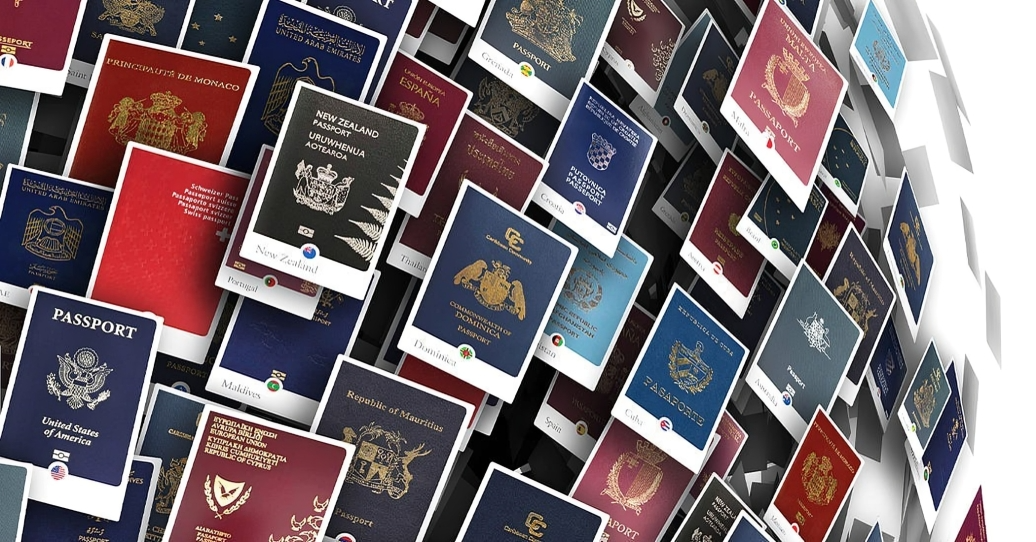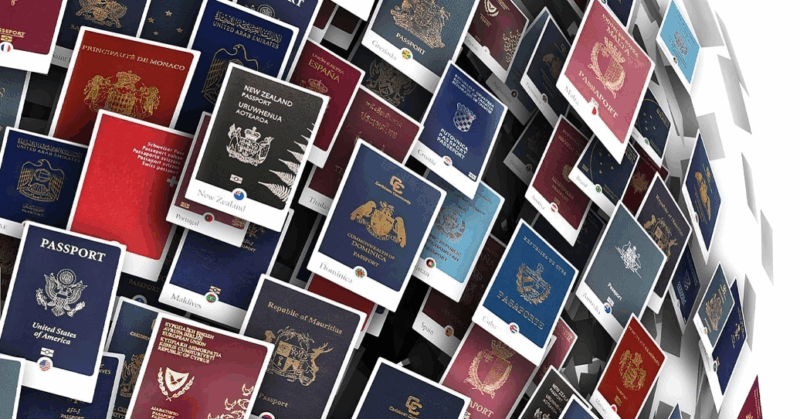
The latest Henley Passport Index, updated and released on October 7, 2005, reveals which passports offer the most extensive travel access globally and which ones are more restrictive.
Although Nigeria has not been classified among the weakest passports, it still ranks in the lower rung of the global list. This ranking highlights the limited mobility that many Nigerians experience when attempting to travel internationally.
What Is This Index?
The Henley Passport Index is a widely recognised global ranking that evaluates the strength of passports based on the number of destinations their holders can access without needing a prior visa. The 2025 edition assessed 199 passports and 227 travel destinations, making it one of the most comprehensive measures of global mobility.
The index is updated regularly, using official data from the International Air Transport Association (IATA). It provides insights into how diplomatic relations, visa policies, and international agreements shape global travel access and ultimately, how much freedom a passport grants its holder.
Where Nigeria Stands
Nigeria narrowly escaped landing in the lowest category on the list, sharing the 96th position with Ethiopia, Lebanon, Myanmar, and the Democratic Republic of Congo. This ranking shows that while Nigeria’s global travel access has not significantly deteriorated, it remains very far from competitive.
While Nigeria’s rank has remained consistent in recent years, it highlights the limited global reach of its passport. For Nigerians, travelling abroad often entails lengthy visa application processes, high rejection rates, and additional financial or documentation requirements, challenges that citizens of higher-ranking countries typically do not encounter.
Across Africa, passport strength varies significantly. South Africa, which ranks 53rd globally, leads the continent with visa-free access to 102 destinations. Botswana is 63rd, and Namibia, which comes 68th, also performs better than many of its regional counterparts.
Ghana ranks 74th, with access to 69 destinations, well above Nigeria’s 44 destinations. Kenya and Tanzania both sit 73rd on the list, highlighting a gap between Nigeria’s economic influence and its diplomatic mobility.
Despite being Africa’s largest economy and most populous country, Nigeria’s relatively weak passport suggests that economic power alone does not guarantee travel freedom.
Stronger bilateral relations, improved international cooperation, and a more stable national image are factors said to play a greater role in determining a passport’s global reach.
The World’s Weakest Passports
At the very bottom of the list are countries with the least travel freedom. The ten weakest passports in 2025 are those of Afghanistan, Syria, Iraq, Yemen, Pakistan, Somalia, North Korea, Nepal, Bangladesh, and Libya.
Citizens from these nations can travel to fewer than 40 countries without needing a visa beforehand. Afghanistan remains the weakest passport in the world, offering access to just 24 destinations, followed closely by Syria (26) and Iraq (29).
In comparison, the world’s strongest passport, Singapore, gives its holders visa-free or visa-on-arrival access to 193 destinations, followed closely by South Korea (190) and Japan (189). The contrast between the top and bottom of the list highlights the significant inequality in global mobility, which is often influenced by economic power, diplomatic strength, and international reputation.
Why Nigeria Trails Behind
Several factors contribute to Nigeria’s low ranking in terms of global travel access. One significant issue is limited visa reciprocity. Nigeria’s visa agreements with other countries are often one-sided, meaning that while Nigerians may be allowed to enter certain countries without a visa, citizens of those countries don’t always enjoy the same privilege when visiting Nigeria.
Additionally, security concerns, high rates of migration, and perceptions of documentation fraud make it more difficult for Nigerians to obtain travel visas.
To further strengthen Nigeria’s passport, it is important to pursue proactive diplomatic initiatives, establish robust border policies, and actively rebuild trust with international partners.
The Bigger Picture
Beyond tourism, a weak passport affects education, business, and cultural exchange. Nigerian students, entrepreneurs, and professionals often face delays and rejections when seeking opportunities abroad. This not only limits personal freedom but also affects the country’s global participation in trade, research, and innovation.
The strength of a passport may not define a nation’s whole identity, but it certainly influences its citizens’ access to the world. As the global economy becomes more interconnected, countries with greater travel freedom tend to benefit from stronger partnerships, smoother investment flows, and broader cultural exchange.
For now, the Nigerian passport may not be among the world’s weakest, but it remains far from powerful. With 44 visa-free destinations and a 96th-place ranking globally, true travel freedom is just a dream for many Nigerians.








